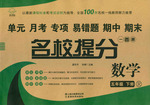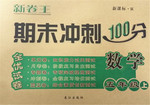题目内容
After World War Two, many of the cities across western European countries _________.
A. lied in ruins B. lay in ruin
C. lay in ruins D. laid in ruins
练习册系列答案
 名校提分一卷通系列答案
名校提分一卷通系列答案 课程达标测试卷闯关100分系列答案
课程达标测试卷闯关100分系列答案 新卷王期末冲刺100分系列答案
新卷王期末冲刺100分系列答案 全能闯关100分系列答案
全能闯关100分系列答案
相关题目
题目内容
After World War Two, many of the cities across western European countries _________.
A. lied in ruins B. lay in ruin
C. lay in ruins D. laid in ruins
 名校提分一卷通系列答案
名校提分一卷通系列答案 课程达标测试卷闯关100分系列答案
课程达标测试卷闯关100分系列答案 新卷王期末冲刺100分系列答案
新卷王期末冲刺100分系列答案 全能闯关100分系列答案
全能闯关100分系列答案